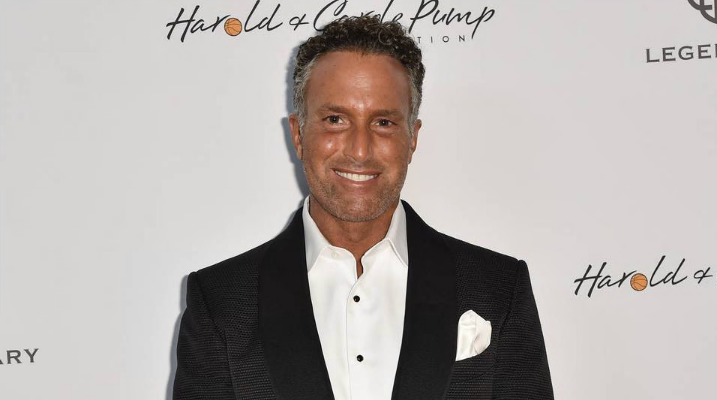Miami judge tosses key evidence, accuses feds of ‘misconduct’ in Medicare fraud case


SOUTH FLORIDA
By Jay Weaver
August 13, 2018 02:47 PM
Updated August 14, 2018 10:25 AM
Federal prosecutors have lost a major battle in the nation’s biggest Medicare criminal case as a judge threw out key evidence in the $1 billion fraud indictment against wealthy Miami Beach businessman Philip Esformes while finding “misconduct” by the Justice Department’s investigative team.
Magistrate Judge Alicia Otazo-Reyes “found the government’s attempt to obfuscate the evidentiary record to be deplorable.” But in her scathing, 117-page ruling issued late Friday, she stopped short of dismissing the indictment and disqualifying the team of Justice Department prosecutors and FBI agents who were involved in the 2016 search of Esformes’ North Miami assisted-living facility, where his company’s lawyer had an office.
Esformes’ defense attorneys urged the judge to take those harsh measures, saying the search at Eden Gardens ALF was tainted because hundreds of the seized documents in the 70 boxes carted away by agents were protected under attorney-client privilege. Instead, Otazo-Reyes chose to suppress the protected correspondence as well as other evidence that was improperly obtained and handled by federal prosecutors and agents.
The fallout from the magistrate judge’s ruling does not derail the Miami federal trial on tap for January, but it could lead to an internal probe by the Justice Department of the initial investigative team and its possible replacement by new prosecutors and agents. The judge’s decision also might give Esformes, 49, and his high-priced defense team greater leverage at trial or in negotiating a favorable plea deal. If convicted at trial, Esformes, who has been detained since his arrest two years ago, runs the risk of being sentenced to prison for the rest of his life.
The Justice Department is reviewing the magistrate judge’s decision and declined to comment. Esformes’ defense attorneys (Howard Srebnick, Roy Black, and Jackie Perczek) also did not want to comment. Both sides must file any objections to the magistrate’s report and recommendations within 14 days with U.S. District Judge Robert Scola, who is presiding over the case. Scola has final say.
The defense lawyers’ significant victory in the pretrial period is a continuation of their strategy in Medicare fraud cases of attacking the integrity of the Justice Department’s investigations in recent years. The defense team has used that tactic to win two other Medicare fraud cases.
Justice Department lawyers Elizabeth Young and Drew Bradylyons, who had to testify during the magistrate judge’s hearings last fall, took a jab at the defense’s strategy in court papers.
“As [Esformes] is aware, his counsel has built a veritable cottage industry out of levying meritless allegations of prosecutorial misconduct,” prosecutors Young and Bradylyons wrote last year.
According to the Justice Department’s indictment, Esformes is accused of exploiting his network of about 20 Miami-Dade skilled-nursing and assisted-living facilities to fleece the taxpayer-funded Medicare program by filing false claims for services that were not necessary or not provided over the past decade leading up to his arrest in July 2016.
An unidentified local hospital referred some of the thousands of Medicare patients to his network through kickback payments to physicians and other medical professionals, according to the indictment. The Miami Herald has learned that it is Larkin Community Hospital in South Miami.
Esformes is charged with conspiring with Arnaldo Carmouze, 58, a Palmetto Bay physician’s assistant, and Odette Barcha, 51, a former director of outreach programs at Larkin.
Esformes is also accused of referring his own network of patients to convicted healthcare-fraud offenders, including Guillermo and Gabriel Delgado. The brothers admitted swindling Medicare for mental-health, prescription-drug, and home-healthcare services, and they ultimately helped federal investigators target the Miami Beach executive.
According to the indictment, the brothers paid kickbacks for the patients by disguising them as payments for escort services for Esformes as well as related travel and hotel expenses.
Esformes was also charged with obstructing justice because prosecutors say he plotted in 2015 with the Delgado brothers to help one of them leave Miami for Israel to avoid trial. Unbeknown to Esformes, the co-conspirators, who had already been charged with sharing Medicare patients with him in the alleged kickback scheme, recorded a two-hour conversation with him before Esformes was indicted the following year. The secret recording was carried out as part of the brothers’ cooperation deal with the feds to plead guilty.
But in her new ruling, the magistrate judge, Otazo-Reyes, tossed out that recording as evidence. She said it had been improperly obtained by the federal investigative team while Esformes and the Delgado brothers were collaborating under a “Joint Defense Agreement.”
Justice Department officials — along with South Florida’s U.S. attorney, the FBI, and Health and Human Services agents — described the Esformes prosecution as the nation’s biggest Medicare fraud case.
Prosecutors said his healthcare network as well as other co-conspirators billed $1 billion for fraudulent medical services since 2009. In turn, Medicare paid Esformes’ skilled-nursing and assisted-living facilities and the Delgado brothers’ healthcare operations about $500 million.
